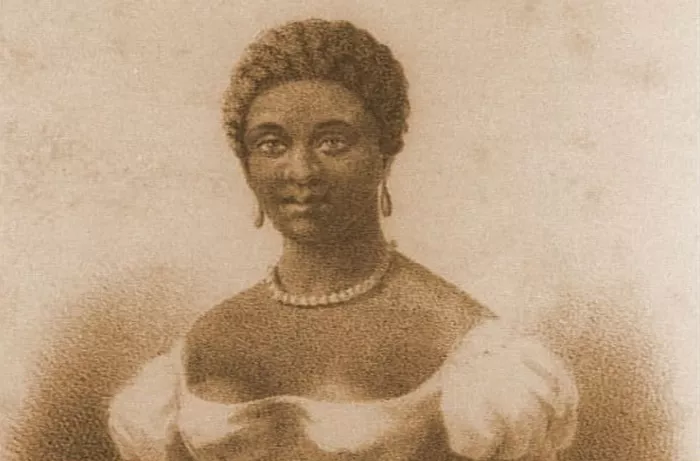The 18th century was a time of great change in America, marking a significant point in the evolution of poetry over the centuries. It was the age of revolution, enlightenment, and the birth of a nation. During this period, many writers and thinkers helped shape the new American identity. Among them were poets who used verse to express ideas about freedom, religion, love, and society.
This article introduces 24 great American poets from the 18th century. Their poems still inspire readers today and give us a glimpse into the heart of early America.
24 Great 18th-Century American Poets
1. Phillis Wheatley
Phillis Wheatley was the first African American woman to publish a book of poetry. Despite her undeniable talent, she faced significant challenges in gaining backing to support literature authored by an African female slave. Born in West Africa, she was enslaved and brought to Boston as a child. Her owners taught her to read and write, and by the age of 12, she was reading classical texts. Her work was validated by colonial leaders, including notable figures like George Washington, who publicly acknowledged her abilities. In 1773, she published Poems on Various Subjects, Religious and Moral. Wheatley’s complex relationship with her owners illustrated slavery’s treacherous demands, as she remained subject to the inherent challenges of enslavement. The colonists were apparently unwilling to support her literary work, forcing her to seek publication in London. Her poetry often praised liberty and Christian faith, showcasing her African genius and challenging racist beliefs of her time. Despite promoting her literary talents, the Wheatleys faced moral ambiguities in keeping Wheatley enslaved. Many British editorials criticized the Wheatley family for maintaining her enslavement while celebrating her in London. After the death of her benefactor, Wheatley endured harsh economic exclusions, experiencing poverty and marginalization.
2. Benjamin Franklin
Although better known for his inventions and political work, Benjamin Franklin also wrote poetry. His poems were usually humorous or satirical, often poking fun at politics or human nature. Franklin believed writing should teach and entertain. His verse reflected his belief in hard work, reason, and the value of knowledge.
3. Edward Taylor
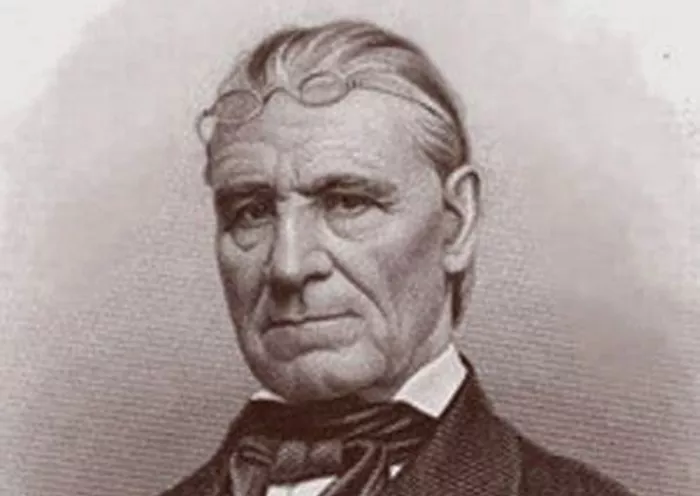
Edward Taylor was a Puritan minister and poet. He wrote poetry to prepare for sermons and to express his deep religious beliefs. His work was personal and spiritual, full of metaphors and biblical themes. Taylor’s poetry wasn’t published in his lifetime, but it’s now recognized as some of the best early American religious poetry.
4. Philip Freneau
Philip Freneau is often called “The Poet of the American Revolution.” He wrote poems that supported American independence and criticized British rule. Freneau’s work combined political passion with natural imagery. He was also a newspaper editor and wrote essays. His influence helped shape American literature during and after the war.
5. J. Hector St. John de Crèvecœur
Though born in France, J. Hector St. John de Crèvecœur became a naturalized American and wrote about life in the colonies. His most famous work is Letters from an American Farmer, which includes poetic prose and observations about rural America. While not a traditional poet, his lyrical writing style and insights earn him a spot on this list.
6. Edmund Burke
Edmund Burke was an Irish-born thinker who supported the American colonies in their quest for independence. While better known for his essays and speeches, Burke’s poetic style and emotional writing influenced American poets of the 18th century. His support of American ideals made his work part of the larger literary landscape.
7. Richard Henry Lee
Richard Henry Lee was a statesman who also wrote patriotic poetry. He is known for proposing the resolution that led to the Declaration of Independence. Lee’s poems expressed love for freedom and the American cause. His writing helped inspire others during the revolution.
8. David Humphreys
David Humphreys was a soldier, diplomat, and poet. He served as an aide to George Washington and wrote poems about war, leadership, and national pride. Humphreys was one of the “Hartford Wits,” a group of Connecticut writers who used poetry to comment on politics and society.
9. Thomas Paine
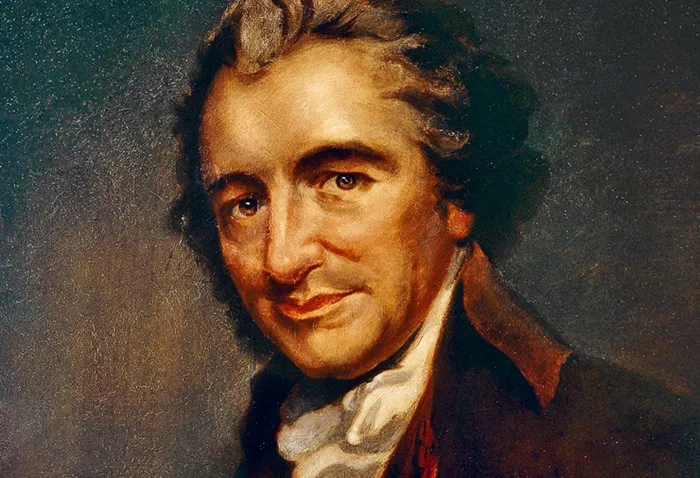
Thomas Paine is famous for his political writings like Common Sense, but he also wrote in verse. His poems expressed radical ideas about freedom, reason, and democracy. Paine believed poetry could be a tool for political change. His style was bold and direct, just like his prose.
10. Sarah Wentworth Morton
Sarah Wentworth Morton was one of the most respected female poets of her time. She published under the pen name “Philenia.” Her poems often dealt with themes of grief, love, and patriotism. Morton’s writing gave voice to women during a time when female authors were rare.
11. William Cullen Bryant
William Cullen Bryant was born in 1794, just after the 18th century, but his early work belongs to its literary spirit. His famous poem “Thanatopsis,” written when he was a teenager, reflected deep thought and respect for nature. Bryant helped shape American romanticism and deserves mention for his youthful poetic talent.
12. Jonathan Edwards
Jonathan Edwards was a preacher and theologian known for his fiery sermons. He also wrote poetry that explored religious themes. His verse often focused on the glory of God and the beauty of nature. Edwards’ writing reflects the intense spirituality of early New England.
13. John Trumbull
John Trumbull was another member of the “Hartford Wits.” He used poetry to satirize British rule and support the revolution. His most famous poem, M’Fingal, was a political satire in verse. Trumbull’s clever use of humor and rhyme helped rally support for American independence.
14. Mildred Lewis
Mildred Lewis is one of the lesser-known names from this period. Though not much of her work survives today, she contributed poems that reflected the challenges faced by women in colonial America. Her writing highlighted family life, loss, and perseverance.
15. James Fenimore Cooper
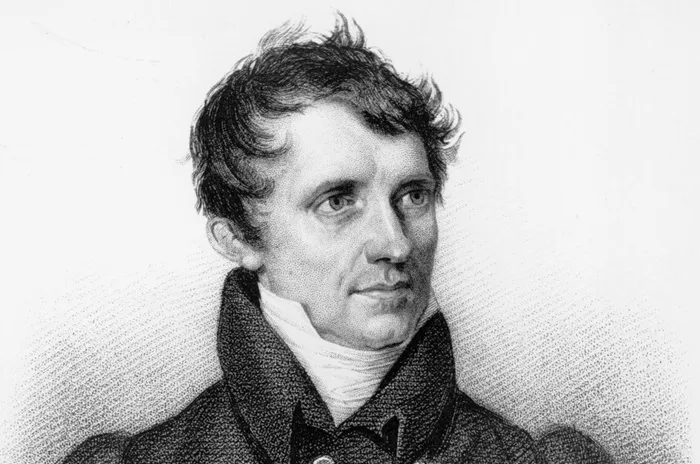
James Fenimore Cooper is best known as a novelist, but he also wrote poetry. Born in 1789, his early poems carried the spirit of the new American nation. Cooper’s poetic works explored nature, history, and Native American life, themes that later appeared in his famous novels.
16. Joel Barlow
Joel Barlow was a poet and diplomat who supported American independence. He wrote long poems that blended history and heroism. His poem The Vision of Columbus praised the discovery of America and the promise of a new world. Barlow’s work reflected the optimism of his time.
17. Hugh Henry Brackenridge
Hugh Henry Brackenridge was a writer, lawyer, and judge. He used poetry and satire to comment on American politics. Brackenridge believed in the power of literature to shape public opinion. His work mixed humor and insight, and he was part of the early effort to create a national literature.
18. Thomas Godfrey
Thomas Godfrey was one of the earliest American-born poets. He wrote poems and plays that explored love, loss, and colonial life. His most famous poem, The Court of Fancy, showed a dreamlike vision of the poet’s imagination. Godfrey’s work helped lay the foundation for American poetry.
19. Jupiter Hammon
Jupiter Hammon was the first African American poet to be published in the United States. Enslaved all his life, he wrote deeply religious poems that also reflected his hope for freedom. His writing style was simple but powerful. Hammon’s work gave a voice to Black Americans in the 18th century.
20. Ebenezer Cooke
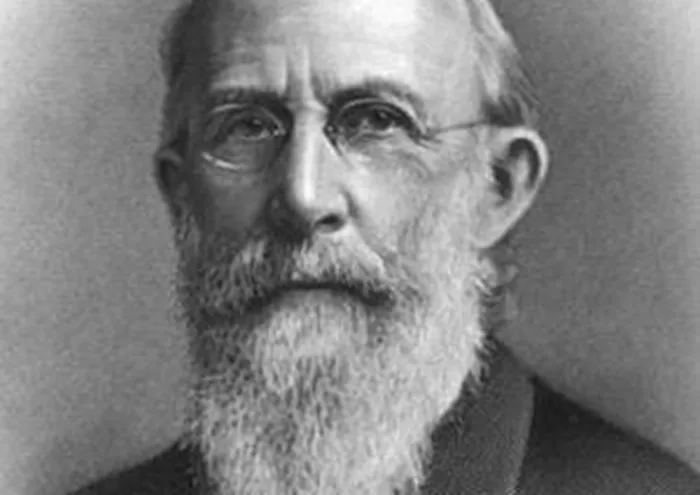
Ebenezer Cooke is best known for his satirical poem The Sot-Weed Factor. This poem mocked the colonists’ struggles in Maryland and used humor to expose their flaws. Cooke’s work is one of the earliest examples of American satire. His style influenced later writers who blended humor with criticism.
21. Joseph Green
Joseph Green was a Boston poet known for his wit and humor. He wrote light verse that often mocked politics and social norms. Green’s poems were clever and popular among colonial readers. He used rhyme and satire to entertain and provoke thought.
22. Goronwy Owen
Goronwy Owen was a Welsh poet who moved to America in the mid-1700s. He brought the rich tradition of Welsh poetry with him. While most of his work was in Welsh, his presence influenced American writers who admired his classical style and poetic structure.
23. Thomas Rowley (pseudonym of James Macpherson)
“Thomas Rowley” was a fictional poet created by James Macpherson and Thomas Chatterton, who influenced colonial poets with their romantic and Gothic style. Though not truly American, the Rowley poems were read and admired by American poets of the 18th century, contributing to a growing interest in medieval and mythical themes.
24. Anne Bradstreet (Honorable Mention)
Though Anne Bradstreet died in the late 17th century, her influence carried well into the 18th century. As the first published American poet, she inspired generations of writers, especially women. Her religious and personal poems remained popular and were read by 18th-century poets.
Conclusion
The 24 poets listed above helped shape early American poetry literature. They wrote about freedom, faith, nature, and human struggles. Some were well-known leaders; others were everyday people with strong voices. Their poems captured the spirit of a young nation finding its place in the world.
Reading their work today helps us understand how America began—not just as a country, but as a culture. These poets deserve to be remembered not only for their words, but for the way they used those words to inspire change, express hope, and create beauty. They contributed to the emergence of a distinctive American voice, expressing unique perspectives that diverged from European traditions and drew inspiration from the American landscape and cultural narratives.

